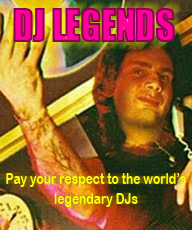Digital v Analogue summing and distortioin
Digital v Analogue summing and distortioin Posted on: 19.10.2012 by Corrin Penney Ez all,I have a curiosity that's been bugging me for a while, hopefully someone here can put me straight. If I mix two digital music sources externally using a traditional analogue mixer (i.e. DVS setup) and clip the signal on the mixer and only on the mixer, am I clipping the signal as analogue or digital? The reason I ask is I hear much uproar about clipping a digital signal due to the way that type of sound degrades. But then an analogue signal clips differently, some people citing a more harmonic distortion instead of square waves produced by digital. As a digital guy in a sea of analogue I find my vinylist counterparts often clip channel signals and potentially even the master out. My digital gear is set so the internal gain structure does not clip, this however means my music is generally much quieter than my analogue cousins. This is usually rectified by a swift bump of the master. But sometimes I have no more headroom on the mixer and the previous DJ has rinsed the gains, the sound man is getting a BJ and I need moar power! The only way to match the volume and keep the vibe is to also, rinse the gains. If I am correct, mixing externally in this fashion should also create the same 'harmonic distortion' effect as traditional analogue simply because of the DAC's on the soundcard (which are not being clipped) at the start of the signal chain. Am I right? | |
| Nancey Inderlied 20.10.2012 |
Originally Posted by ksandvik
|
| Celine Surico 19.10.2012 |
Originally Posted by mostapha
|
| Romelia Stankard 19.10.2012 |
Originally Posted by Flash101uk
|
| Corrin Penney 19.10.2012 | Ez all, I have a curiosity that's been bugging me for a while, hopefully someone here can put me straight. If I mix two digital music sources externally using a traditional analogue mixer (i.e. DVS setup) and clip the signal on the mixer and only on the mixer, am I clipping the signal as analogue or digital? The reason I ask is I hear much uproar about clipping a digital signal due to the way that type of sound degrades. But then an analogue signal clips differently, some people citing a more harmonic distortion instead of square waves produced by digital. As a digital guy in a sea of analogue I find my vinylist counterparts often clip channel signals and potentially even the master out. My digital gear is set so the internal gain structure does not clip, this however means my music is generally much quieter than my analogue cousins. This is usually rectified by a swift bump of the master. But sometimes I have no more headroom on the mixer and the previous DJ has rinsed the gains, the sound man is getting a BJ and I need moar power! The only way to match the volume and keep the vibe is to also, rinse the gains. If I am correct, mixing externally in this fashion should also create the same 'harmonic distortion' effect as traditional analogue simply because of the DAC's on the soundcard (which are not being clipped) at the start of the signal chain. Am I right? |
| Dorie Scelzo 22.10.2012 | Yep. It's another effect of the volume war as far as I can tell. "0" on an SSL Console (Solid State Logic, not Serato) or Studer tape machine or any other studio gear is a lot quieter than "0" on a DJ mixer. I don't remember the details, and obviously there are differences between DJ mixers and studio mixers……but running a DJ mixer into the red is more like running an SSL at something like +50……which sounds like crap. |
| Nancey Inderlied 20.10.2012 |
Originally Posted by ksandvik
|
| Dorie Scelzo 19.10.2012 | Actually, yes. I also play guitar. And while I can't hear the difference between good tube distortion and excellent modelling in recordings, I can tell when I'm playing. But that's not what he's talking about. He's talking about doing it to songs that have already been mastered using DJ-level circuitry, which is almost universally worse than even cheap 2-tracks. Also, the saturation there was just different. The point where nonlinear responses kicked in wasn't very high over 0 VU (red)…and there was still a good bit of headroom left before you actually started hard clipping. |
| Celine Surico 19.10.2012 |
Originally Posted by mostapha
|
| Dorie Scelzo 19.10.2012 | At the stage you're talking about, all distortion is bad. Period. End of story. Good day. Let your ears be your guide, though. If it sounds good, it sounds good. But, really, the analog distortion = warm thing is kind of BS in most cases. |
| Nancey Inderlied 19.10.2012 | When you say "analogue mixer" and "analogue distortion," it's important to make the distinction between analogue and digital mixers, too. Theres a difference between "analogue" as in "discrete or hardware," and "analogue" as in "analogue signal processors." A discrete digital mixer will still clip digitally, despite being "analogue." If you're playing off the same mixer, you shouldnt be having issues with volume, provided the channel metering is working properly. It's possible to diagnose and troubleshoot that issue if youre having a problem, but we need more info on the setup. |
| Nedra Fresneda 20.10.2012 | ^This The big no-no applies mainly to digital clipping, analog distortion will be less harsh unless you push it to 11 of course. What you need to do is rise the PA's volume, not keep on pushing into the red of the mixer. How "pleasant" the distortion is will depend entirely on the mixer used and personally i would rather keep a clean signal and preserve the dynamics. |
| Romelia Stankard 19.10.2012 |
Originally Posted by Flash101uk
|
| Eilene Mayall 19.10.2012 | You're right that in the scenario you describe it would be analogue distortion, and also that analogue distortion does not sound as bad as digital distortion. However, it is never a good idea to go into the red in any part of the signal chain, as it sounds terrible, and sending a constantly clipping signal to the speakers is not good, and makes the chances of blowing drivers much higher. If you need more volume and you have no headroom on your mixer, either the level needs boosting at the house mixer, or the PA system is not powerful enough. Creating harmonic distortion as a pleasing effect is not something you would really do when playing back a finished, mastered track, it is more of a recording technique for individual tracks of a multitrack recording. |
<< Back to General DiscussionReply



